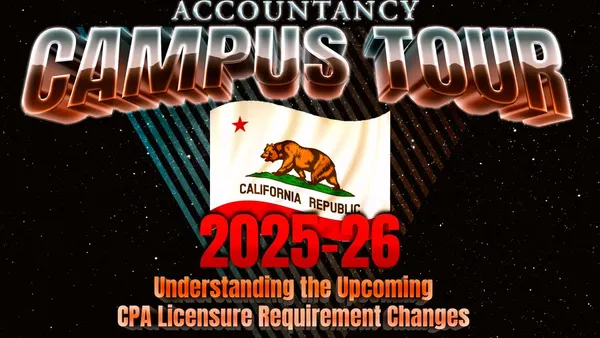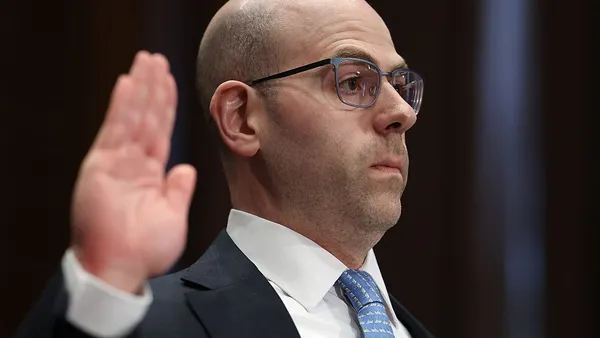Dive Brief:
- Senate lawmakers in the Virginia legislature unanimously (39-0) passed a bill Monday (HB 2042) that gives prospective certified public accountants a new path to licensure that doesn’t require 150 hours of college credit. A similar bill (SB 1042) was unanimously passed in a 94-0 vote in the state’s House on Feb. 11.
- The legislation, which needs to be signed by Gov. Glenn Youngkin, would still require all candidates to pass the CPA exam. But as of Jan. 1, 2026, a person could qualify for licensure in Virginia by obtaining a baccalaureate degree — meaning four years of college with an accounting or equivalent concentration — and two years of relevant work experience. CPA candidates could also qualify for licensure with a master’s degree and one year of work experience or by following the existing route of completing 150 hours of college credit and one year of work experience.
- “We were definitely thrilled that [the bills] were unanimously approved,” said Emily Walker, vice president, advocacy and pipeline at the Virginia Society of CPAs, which backed the bill. Walker noted that the legislation drew bipartisan support in part because legislators are generally focused on workforce development and looking to remove barriers to work opportunities. “You’re not only saving on college education but getting [people] into the workforce sooner … That’s very appealing regardless of which side of the aisle you’re sitting on,” she said in an interview.
Dive Insight:
The legislation makes Virginia the second state, after Ohio, to pass legislation which gives students additional paths to CPA licensure that require more “real life” experience in the industry rather than an additional 30 hours of education, according to a Monday VSCPA press release. A bachelor’s degree typically requires 120 credit hours of credit.
“Corporations can’t run without finance teams, and businesses rely on their CPAs for valuable tax planning and strategic advice,” VSCPA President and CEO Stephanie R. Peters said in a statement included in a VSCPA release regarding the HB 2042 bill. “It’s crucial we develop new ways to get accountants licensed as CPAs to become the trusted business advisors that help keep our economy running.”
The push to offer alternatives to the 150-hour college credit requirement — effectively five years of college — previously drew pushback from the American Institute of CPAs, which raised objections related to concerns about a hodgepodge of state requirements making it difficult for accountants to work in states outside the one where they gained their license.
But the concept has gained momentum since the AICPA shifted gears last year, largely throwing its support behind alternative pathways. Reducing the time and cost of education was cited as one of the top recommendations made by the industry’s National Pipeline Advisory Group in a 95-page report published last year aimed at tackling the shortage of accounting talent and the decline in recent years of younger professionals choosing the profession.
This year a legislative push to update licensure requirements across the country is gaining momentum. More than a dozen states including Texas, Illinois, Minnesota and Florida are in the process of pursuing legislation or Board of Accountancy rule changes that are similar to those pursued by Ohio and Virginia, according to a map on the Minnesota Society of Certified Public Accountants’ website which tracks the efforts.
On Tuesday Minnesota itself saw legislation advancement on the CPA licensure issue, with a bill (Senate File 1536) introduced in the state’s Senate and Local Government Committee. The state’s lawmakers were among the first in the country to take up the matter but the bill stalled last year. Geno Fragnito, director of government relations at the MNCPA, believes the national momentum will make a difference this time.
“I think the conversations will be much more productive,” Fragnito said in an interview, adding that it’s no longer “Minnesota being an island of one.”
Still, the shortage of qualified accountants — and the risks of error that stems from it — are likely to persist this year. However, companies offering good compensation and benefits will likely attract the best talent while others can limit the risk of errors by spending more on training, CFO Dive previously reported.















